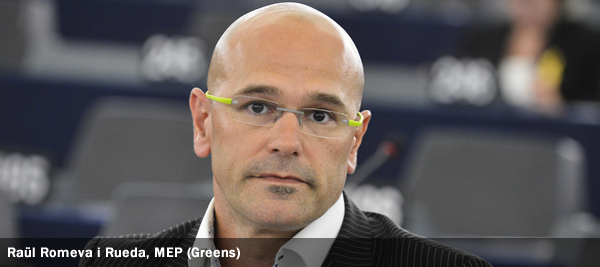“Join forces and fight femicide,” was the headline declaration at the launch of International Women’s Day in the European Parliament. Led by the Greens / EFA Group, with the support of civil society groups ALOP, CIFCA, Oidhaco, Groupo Sur and the Heinrich Boell Foundation, the day was dedicated to finding solutions to end femicide in Europe and Latin America.
The bi-regional dialogue on gender between the Community of Latin America and the Caribbean as well as the European Union (EU – CELAC ) has been welcomed by civil society, but it asked to go further and take concrete steps to eradicate femicide, such as the creation of indicators, defining evaluation mechanisms, and the inclusion of information and participation from civil society. Particularly, this dialogue must be founded on good practice in which states support the mechanisms and ratify the existing conventions in the area.
The respective organizations have complained that the serious situation of violence against women and girls, particularly femicide, continues to rise. They hope that the 58th Session of the Commission on the Status of Women, to be held next week at the United Nations headquarters in New York, will be able to establish an international work plan that includes strategic actions to prevent, punish and eradicate all forms of violence against women at different levels of society: an holistic plan of action against femicide and violence against women.
Rashida Manjoo, UN Special Rapporteur on violence against women, reminded in the event the responsibility of States in the fight against femicide and explained that these crimes of extreme violence are sustained and perpetuated due to the existence of a culture of discrimination and hatred towards women. According to Manjoo, “these killings are committed regardless of race, religion or social status of women, which are a common problem for both regions.”
To combat this phenomenon, MEP Raul Romeva i Rueda along with Colombian congresswoman Gloria Florez, both members of the Euro -Latin American Parliamentary Assembly (EuroLat), are pushing a resolution calling on the governments of the two said regions, stating that the design, implementation and reformulation of public policies on violence against women should be reviewed, because until now it has not been possible to halt the rise of femicide in neither Latin America or Europe.
Dutch citizen, Arsene van Nierop, mother of Hester, a young victim of femicide , murdered in Ciudad Juarez on September 19, 1998, attended the conference. Since the murder of her daughter, and through the Foundation Hester, Arsène has dedicated her life to make the phenomenon of femicide visible internationally and to prevent violence against women in Ciudad Juárez. With the recent arrest of the alleged murderer of her daughter by the Mexican police, Arsène expressed satisfaction that at last, after fifteen years this has been achieved and urged Mexican authorities to conduct a trial but reiterated that 99 percent of these crimes go unpunished.
During her speech Katherine Ronderos, director of the Women’s International League for Peace and Freedom, stressed the importance that the governments of the two regions continue their effort to combat impunity by ensuring access to effective justice and reparation for victims and their families.
The civil society organisations responsible for this conference call on the EU and CELAC, along with related organisations, to demonstrate their political will to ensure the full exercise of the rights of women and the eradication of all forms of violence against women, including femicide.
